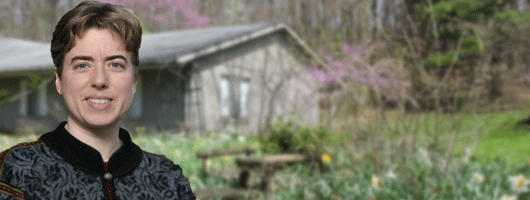 Pictured | Deborah Marr, Ph.D. | Indiana University, 1997 | Director of Sustainability Studies; and Associate Professor of Biology
Pictured | Deborah Marr, Ph.D. | Indiana University, 1997 | Director of Sustainability Studies; and Associate Professor of Biology
Sustainability Studies
Deborah Marr, Ph.D. | Director
Northside Hall 132D | (574) 520-5564 | (574) 520-5509
csfuture@iusb.edu | sustainthefuture.iusb.edu
Faculty
- Director | Marr
- Lecturer | Bailey
- Center for a Sustainable Future | Bailey (Director)
Associated Faculty
- Ananth (Philosophy)
- W. Feighery (Chemistry)
- Hebert (Education)
- Hinnefeld (Physics)
- Lidinsky (Women's and Gender Studies)
- M. Nilsen (History)
- Quimby (Applied Health Sciences)
- Schnabel (Biological Sciences)
- Schrank (Sociology)
- Scott (Physics)
- Sernau (Sociology)
- Shockey (Philosophy)
- K. Smith (English)
- Tetzlaff (History)
- Wells (Anthropology and Informatics)
- Zwicker (History)
Sustainability Studies
Global climate change and environmental degradation offer both new challenges and opportunities as government, businesses, and the public look for solutions. The Sustainability Studies Program is carefully designed to help students understand and respond to these complicated issues and to lead the way in the creation of a sustainable future, while preparing them for the new jobs of the emerging green economy.
Sustainability is generally characterized as meeting the needs of the present without compromising the ability of future generations to meet their own needs. It requires the integration of natural scientific understanding of the threat of environmental degradation with social and behavioral scientific understanding of the social, economic, cultural and political factors driving the human contributions to the problem, as well as to its solution. It also draws upon the historical perspective, ethical sensibilities, and creative imagination of the arts and humanities to help understand what led us to this point, and to map out alternative futures.
The Sustainability Studies Program provides an interdisciplinary framework within which students can study the foundations of sustainability and learn how to apply this knowledge to the development and implementation of sustainable values, innovations, practices, and technologies, in our homes, in business, on campus, and in our communities. It emphasizes connections between environment, economy, and society; and builds a community of faculty and students committed to tackling the complex socio-environmental problems confronting our communities and the world. In addition to the traditional classroom, sustainability studies bridges the gap between campus and community through civic engagement and experiential, project-based, and service learning. This curriculum has been carefully designed to offer students a seamless classroom-to-career transition upon completion.
Undergraduate Degree Offered
Minor Offered
Graduate Certificate Offered
Course Descriptions
Sustainability Studies SUST